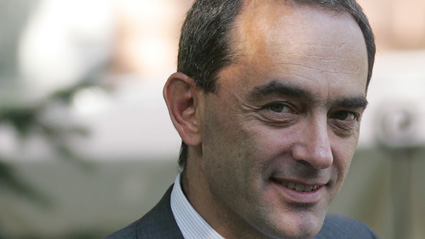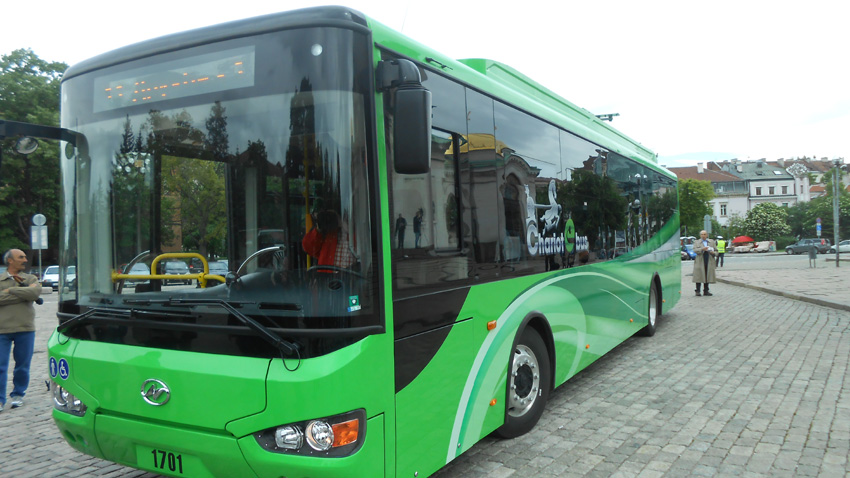If we want energy diversification combined with protection of the environment and combating global warming, we should reduce our dependence on oil. In industrialized countries, including China, India and Japan, a way to do that is electromobility. In Europe, the most advanced country in this respect is Norway, which has made its choice despite being the largest oil producer on the continent.
A classic form of subsidizing electro-mobility is reallocation of funds received from taxes on conventional cars. In Bulgaria, however, they are too low to provide a decent budget.
 Martin Zaimov is the first Bulgarian who purchased and registered an electric vehicle in Bulgaria. He is also an active member of the Electric Vehicles Industrial Cluster (EVIC) and the Bulgarian Electric Vehicle Association (BAEPS).
Martin Zaimov is the first Bulgarian who purchased and registered an electric vehicle in Bulgaria. He is also an active member of the Electric Vehicles Industrial Cluster (EVIC) and the Bulgarian Electric Vehicle Association (BAEPS).
How do individual consumers and the business adapt to this new culture of transportation?
In business there is always a big momentum because large companies cannot easily adapt and change their functions and habits. The biggest obstacle for electro-mobility today stem from the largest producers and distributors of conventional cars. They have already set a business model with thousands of companies that supply spare parts. They have a very complicated system for design and production, distribution, commercialization and financing.
Martin Zaimov adds that the main challenge remains changing existing habits:
There are companies that have replaced their fleets of vehicles with electric cars on their own initiative and without receiving incentives. And they are all very happy - both producers and consumers. Driving an electric car is a great pleasure compared to conventional vehicles, unless you are young man who wants to make impression with a roaring engine.
 If someone should set an example with the use of electric vehicles (EVs), these should be the state and the municipality. An experimental Chinese-made electric bus of a Bulgarian-Israeli company has been operating in Sofia for a year. This a very innovative vehicle, powered not by batteries but by supercapacitors. They have enough capacity to power the bus between its end stops where it takes just 2-3 minutes to fully charge. The company producing the buses has already received an order for 5 vehicles from the municipality of Belgrade, Serbia.
If someone should set an example with the use of electric vehicles (EVs), these should be the state and the municipality. An experimental Chinese-made electric bus of a Bulgarian-Israeli company has been operating in Sofia for a year. This a very innovative vehicle, powered not by batteries but by supercapacitors. They have enough capacity to power the bus between its end stops where it takes just 2-3 minutes to fully charge. The company producing the buses has already received an order for 5 vehicles from the municipality of Belgrade, Serbia.
We hope that Bulgarian municipalities will also mark progress in the sphere, as currently there are no bus lines served completely by electric buses. So far the Bulgarian municipalities of Sofia, Plovdiv, Gabrovo and Veliko Tarnovo have shown interest in electric buses using batteries or super capacitors.
There is also an ongoing debate between members of the EVIC and BAEPS related to the extent of the incentives received in the form of state subsidies. Martin Zaimov supports the German model: state and municipal regulations without direct subsidies.
Subsidies are bad for two reasons. First they are burden to all taxpayers, while a few would benefit. Also when you create a business model based on subsidies, it is very difficult to stop this policy as the business starts focusing solely on receiving the subsidy. This way the whole process becomes unstable and dependent on the state.
What are the best practices that Bulgaria could quickly start implementing?
According to Martin Zaimov, a good example is the Autolib service in Paris, Nice and Lyon. Municipalities provide electric vehicles for public use on a paid subscription basis. They are used for short-distance travels and shared rides. Of course, such a project requires logistics, charging stations for electric vehicles and parking stations where users change vehicles.
English: Alexander Markov
Timișoara, a large multicultural city in western Romania, is the center of the historical community of the Banat Bulgarians . The members of this community are descendants of settlers from the Bulgarian lands nearly three centuries ago, who have..
In Gabrovo – a city in the geographical center of Bulgaria, once described as the Bulgarian Manchester, but today facing demographic challenges – there are young people who believe that the future can be better and that this largely..
For 15 years, Stela Nedkova has been living in Brussels . After completing her education in Bulgaria, she decided to test herself in a different reality to see whether she could handle life’s challenges on her own, without her parents’ help. Stela faced..

+359 2 9336 661
